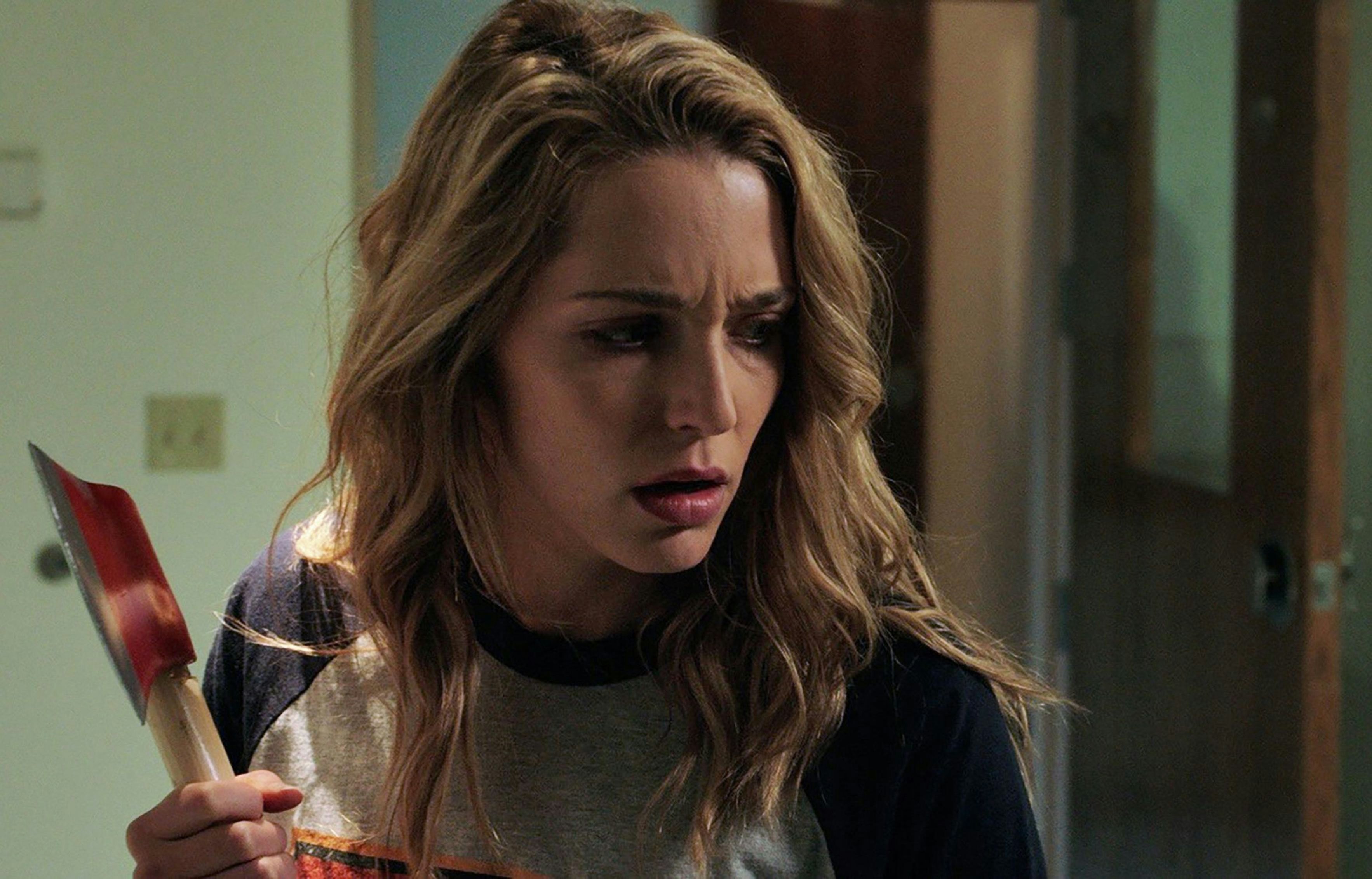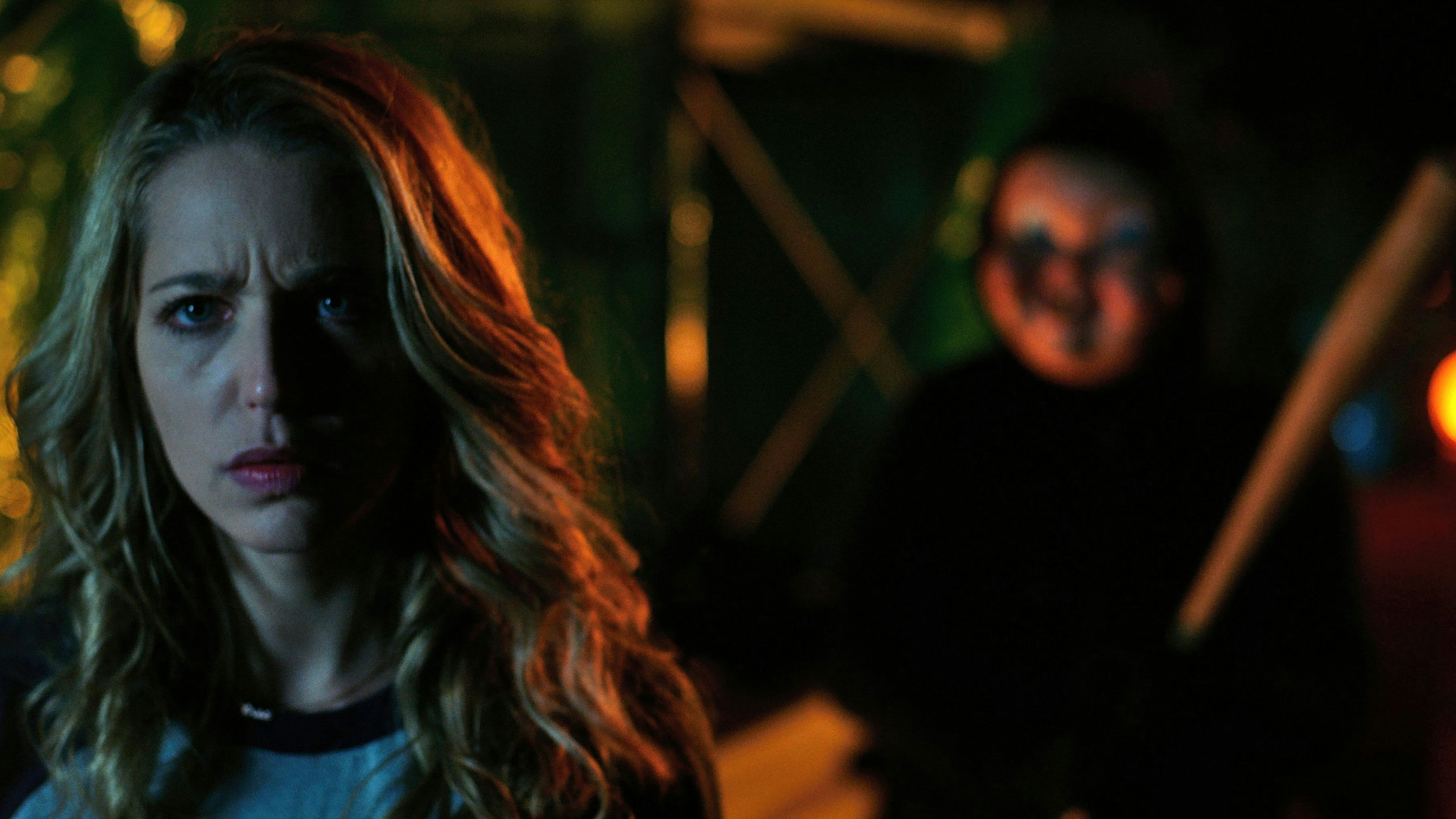
Nobody messes with a “Kappa bitch.”
By design, time loop narratives demand innovation. The first few minutes are the most important; everything the lead character sees, hears, and feels is a domino block waiting to be toppled in some unique way. The climax is just as critical. Breaking the loop is a tough nut for both the protagonist and the filmmakers.
The predicament characters find themselves in is a terrifying one, too. Even in stories that aren’t classically horror — movies like Palm Springs, and TV shows like Legends of Tomorrow and Russian Doll — characters still freak at the prospect of living the rest of their days in a repeat purgatory.
But five years ago, a microbudget slasher from Blumhouse put the familiar “time loop” plot through the blood-soaked wringer. With refreshing swerves from entrenched tropes and a winking sense of humor, the picture stands as one of the decade’s best based purely on its feeling of effortless fun.
Released in 2017, Happy Death Day is a comedy-horror hybrid that fires on almost all cylinders. Directed by Christopher Landon and written by Scott Lobdell, what’s most remarkable is the power of its unlikable but sympathetic lead, whose rough exterior hides genuine pain. “You live the same day over and over again,” muses Tree, Happy Death Day’s chosen final girl (Jessica Rothe), “and you kind of start to see who you really are.”
A college girl and a hot mess, Tree wakes up in the dorm of a stranger, Carter (Israel Broussard). Obnoxious to everyone around her and hostile to those who try to love her, Tree is maybe the loneliest girl in her sorority house. Later, on her birthday, she’s murdered by a masked killer. Tree then wakes up in Carter’s bed and is forced to live her day repeatedly until she can track down her killer and beat the loop.
As a time loop film, Happy Death Day brings a few clever innovations. Unlike Groundhog Day or Edge of Tomorrow, the loops are finite; each “death” gives Tree lasting physical damage, bringing a sense of urgency to her mission. While Happy Death Day doesn’t take full advantage of the idea, it’s still a new step in the routine that lets the movie differentiate from similar films where physical mortality isn’t a survival factor.
But what gives Happy Death Day most of its strength is Rothe, whose Tree defies decades of final girl stereotyping. Rothe, notable for the little-seen multiverse sci-fi Parallels and the Amazon thriller Utopia, wields a rare onscreen magnetism that compels audiences to pay attention. Even when Tree is at her most distasteful, you’re never turned off at the possibility of redemption. She’s flawed in a way that’s credible and replete with pathos. Part of the movie’s forward thrust is that you want to see Tree better herself. This isn’t the key to Tree’s survival — she could have stayed who she was and still made it out alive — but her willingness to change contrasts with the film’s underlying darkness.

As a horror movie, Happy Death Day is pretty rudimentary. The scares it conjures are tragically zapped of suspense, and the killer’s design, a chance for even the most middling horror movie to obtain some cult appeal, isn’t iconic as it is simply off-putting. But where Happy Death Day excels is with Tree, who excels as defiant commentary on the worn final girl trope.
As laid out by Carol J. Clover in her seminal 1992 book Men, Women, and Chainsaws: Gender in the Modern Horror Film, “final girls” are the amiable, morally righteous, and typically virginal female protagonists of horror movies whose relationship to their would-be killers are deep and personal. There is a deep, personal connection between Tree and her killer. But amiable? Moral? Virginal? Tree is not.
Between her illicit affair with her married professor and instances that speak to a repugnant character — like when she calls rival Delta Gamma sisters “heifers” — Tree is indeed a final girl, but one who rebels against the structures that give her life. She isn’t the first lead of a horror movie to be so mutinous against her archetype, but she’s one of the few to exist in a way that feels natural rather than offering cheap self-awareness.
Five years on, Happy Death Day is still clever enough to feel original, and bold enough to know exactly where its limits are. There’s plenty of emotional complexity, particularly in its character work. It has shortcomings, sure. But between its wry humor and powerhouse lead, Happy Death Day is a riot that advocates starting every day on the right foot. If the day must feel like a prison, we can at least ensure it isn’t a living hell.







